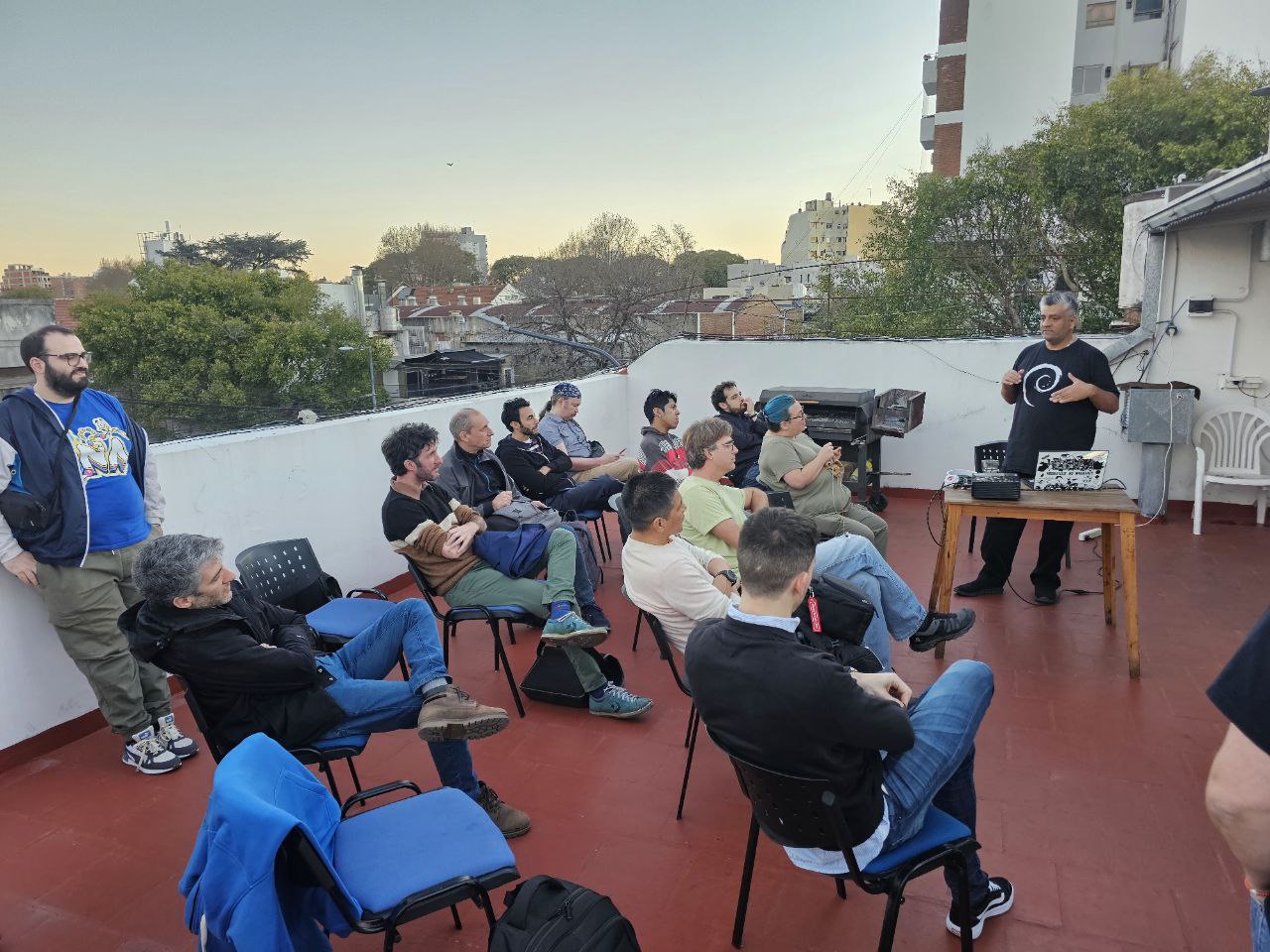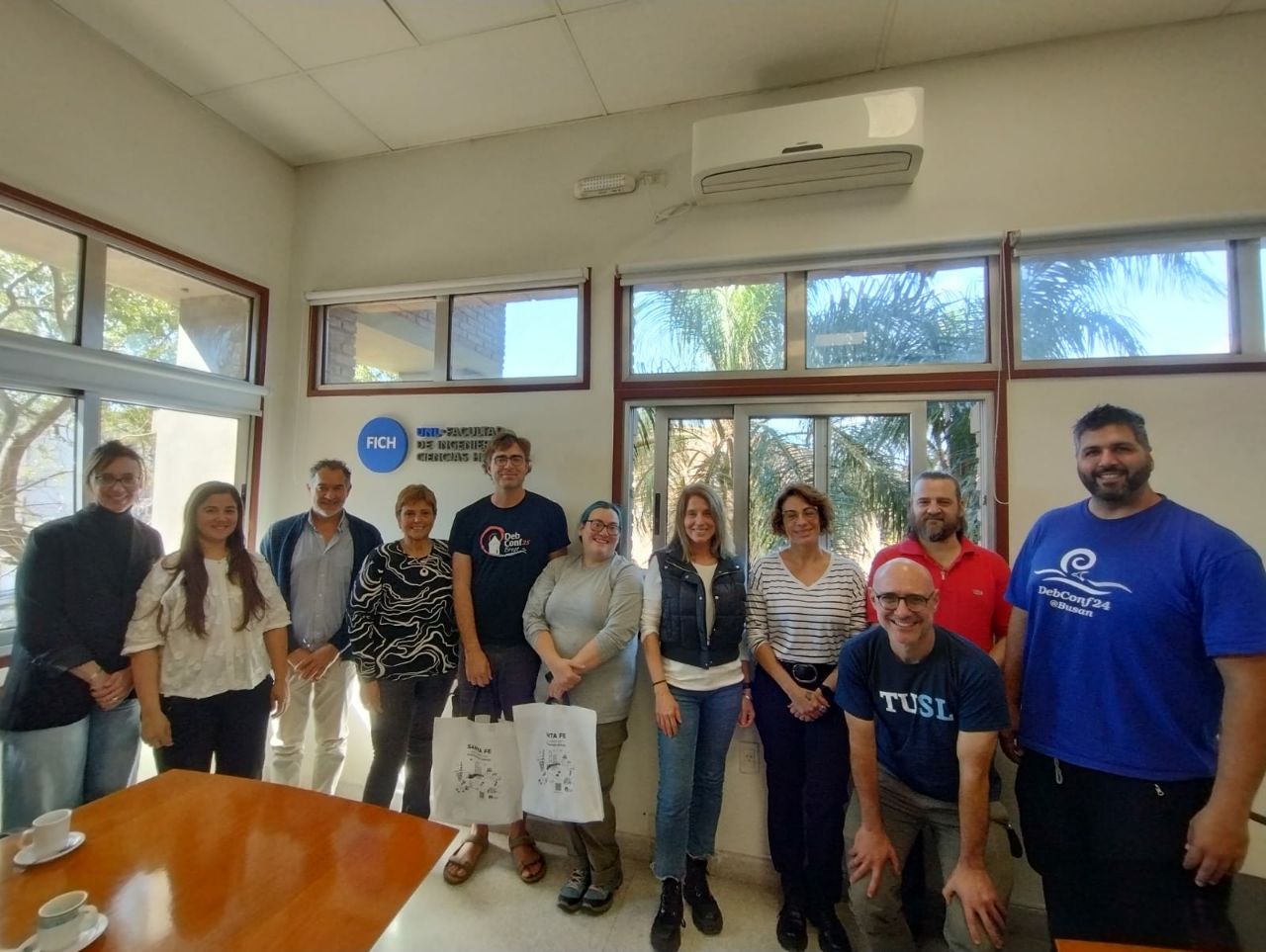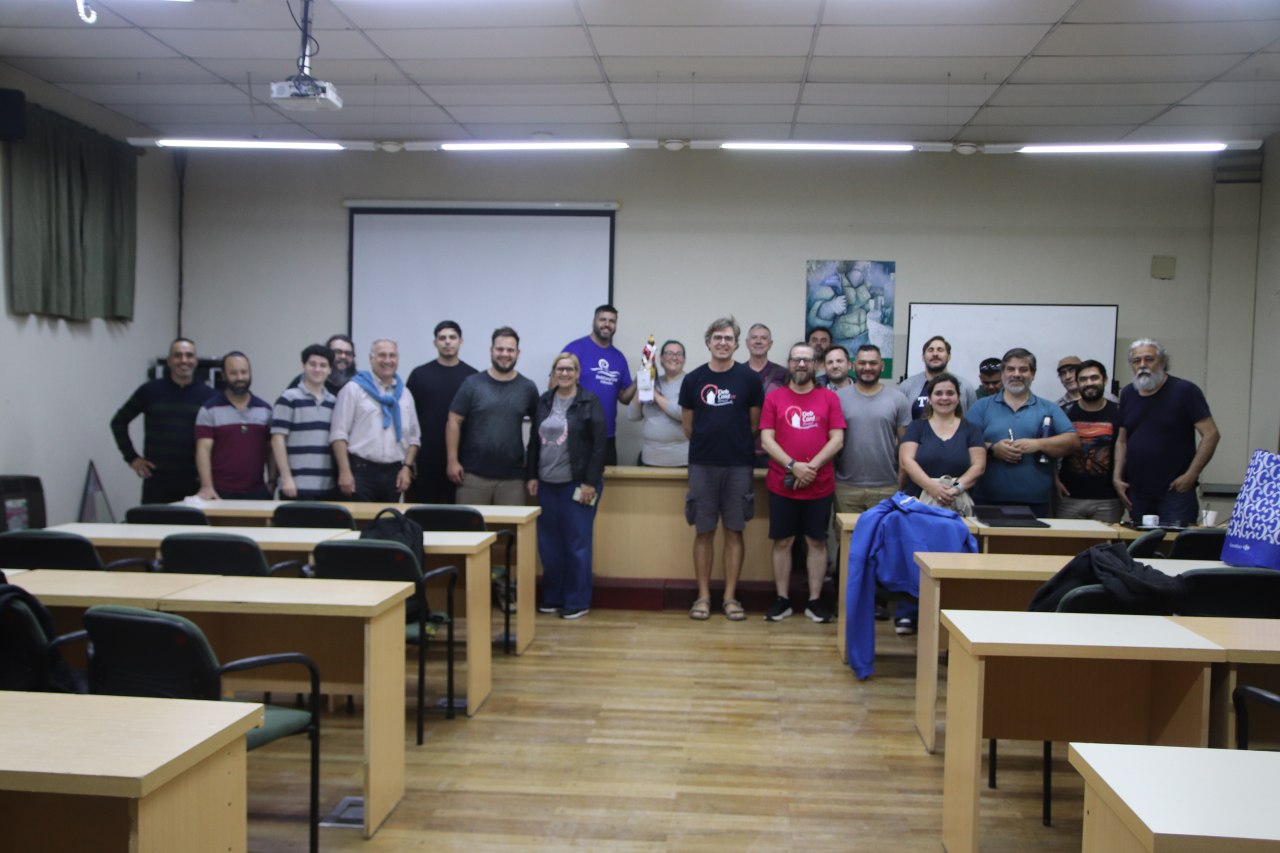Debian welcomes Outreachy interns for December 2025-March 2026 round
On Mon 05 January 2026 with tags announce outreachyWritten by Anupa Ann Joseph, Tássia Camões Araújo
Artwork by Outreachy

Debian continues participating in Outreachy, and as you might have already noticed, Debian has selected two interns for the Outreachy December 2025 - March 2026 round.
After a busy contribution phase and a competitive selection process, Hellen Chemtai Taylor and Isoken Ibizugbe are officially working as interns on Debian Images Testing with OpenQA for the past month, mentored by Tássia Camões Araújo, Roland Clobus and Philip Hands.
Congratulations and welcome Hellen Chemtai Taylor and Isoken Ibizugbe!
The team also congratulates all candidates for their valuable contributions, with special thanks to those who manage to continue participating as volunteers.
From the official website: Outreachy provides three-month internships for people from groups traditionally underrepresented in tech. Interns work remotely with mentors from Free and Open Source Software (FOSS) communities on projects ranging from programming, user experience, documentation, illustration and graphical design, to data science.
The Outreachy programme is possible in Debian thanks to the efforts of Debian developers and contributors who dedicate their free time to mentor students and outreach tasks, and the Software Freedom Conservancy's administrative support, as well as the continued support of Debian's donors, who provide funding for the internships.
Join us and help to improve Debian! You can follow the work of the Outreachy interns reading their blog posts (syndicated in Planet Debian), and chat with the team at the debian-openqa matrix channel. For Outreachy matters, the programme admins can be reached on #debian-outreach IRC/matrix channel and mailing list.
DebConf26 dates announced
On Wed 31 December 2025 with tags debconf26 announce debconfWritten by Publicity team
Artwork by Romina Molina
As announced in Brest, France, in July, the Debian Conference is heading to Santa Fe, Argentina.
The DebConf26 team and the local organizers team in Argentina are excited to announce Debconf26 dates, the 27th edition of the Debian Developers and Contributors Conference:
DebCamp, the annual hacking session, will run from Monday July 13th to Sunday to July 19th 2026, followed by DebConf from Monday July 20th to Saturday July 25th 2026.
For all those who wish to meet us in Santa Fe, the next step will be the opening of registration on January 26, 2026. The call for proposals period for anyone wishing to submit a conference or event proposal will be launched on the same day.
DebConf26 is looking for sponsors; if you are interested or think you know of others who would be willing to help, please have a look at our sponsorship page and get in touch with sponsors@debconf.org.
About Debian
The Debian Project was founded in 1993 by Ian Murdock to be a truly free community project. Since then the project has grown to be one of the largest and most influential Open Source projects. Thousands of volunteers from all over the world work together to create and maintain Debian software. Available in 70 languages, and supporting a huge range of computer types, Debian calls itself the universal operating system.
About DebConf
DebConf is the Debian Project's developer conference. In addition to a full schedule of technical, social and policy talks, DebConf provides an opportunity for developers, contributors and other interested people to meet in person and work together more closely. It has taken place annually since 2000 in locations as varied as Scotland, Bosnia and Herzegovina, India, Korea. More information about DebConf is available from https://debconf.org/.
For further information, please visit the DebConf26 web page at https://debconf26.debconf.org/ or send mail to press@debian.org.
Debconf26 is made possible by Proxmox and others.
New Debian Developers and Maintainers (September and October 2025)
On Wed 26 November 2025 with tags projectWritten by Jean-Pierre Giraud
Translations: ar ca es fr hi-IN pl pt sv vi zh-CN
The following contributors got their Debian Developer accounts in the last two months:
- Evangelos Ribeiro Tzaras (devrts)
- Andrea Bolognani (abologna)
The following contributors were added as Debian Maintainers in the last two months:
- Rylie Pavlik
- Yuchin Tsai
- Daniel Markstedt
- Guido Berhörster
- Renzo Davoli
Congratulations!
New Debian Developers and Maintainers (July and August 2025)
On Sat 27 September 2025 with tags projectWritten by Jean-Pierre Giraud
Translations: ar ca es fr hi-IN pl pt sv vi zh-CN
The following contributors got their Debian Developer accounts in the last two months:
- Francesco Ballarin (ballarin)
- Roland Clobus (rclobus)
- Antoine Le Gonidec (vv221)
- Guilherme Puida Moreira (puida)
- NoisyCoil (noisycoil)
- Akash Santhosh (akash)
- Lena Voytek (lena)
The following contributors were added as Debian Maintainers in the last two months:
- Andrew James Bower
- Kirill Rekhov
- Alexandre Viard
- Manuel Traut
- Harald Dunkel
Congratulations!
Bits From Argentina - August 2025
On Sun 21 September 2025 with tags debconf26 ArgentinaWritten by Emmanuel Arias
DebConf26 is already in the air in Argentina. Organizing DebConf26 give us the opportunity to talk about Debian in our country again. This is not the first time that Debian has come here, previously Argentina has hosted DebConf 8 in Mar del Plata.
In August, Nattie Mayer-Hutchings and Stefano Rivera from DebConf Committee visited the venue where the next DebConf will take place. They came to Argentina in order to see what it is like to travel from Buenos Aires to Santa Fe (the venue of the next DebConf). In addition, they were able to observe the layout and size of the classrooms and halls, as well as the infrastructure available at the venue, which will be useful for the Video Team.
But before going to Santa Fe, on the August 27th, we organized a meetup in Buenos Aires at GCoop, where we hosted some talks:
- ¿Qué es Debian? - Pablo Gonzalez (sultanovich) / Emmanuel Arias
- Cooperativismo y Software Libre - Osiux (gcoop)
- Debian and DebConf (Stefano Rivera)

On August 28th, we had the opportunity to get to know the Venue. We walked around the city and, obviously, sampled some of the beers from Santa Fe.
On August 29th we met with representatives of the University and local government who were all very supportive. We are very grateful to them for opening their doors to DebConf.

In the afternoon we met some of the local free software community at an event we held in ATE Santa Fe. The event included several talks:
- ¿Qué es Debian? - Pablo (sultanovich) / Emmanuel Arias
- Ciberrestauradores: Gestores de basura electrónica - Programa RAEES Acutis
- Debian and DebConf (Stefano Rivera/Nattie Mayer-Hutchings)

Thanks to Debian Argentina, and all the people who will make DebConf26 possible.
Thanks to Nattie Mayer-Hutchings and Stefano Rivera for reviewing an earlier version of this article.
Page 1 / 65 »

